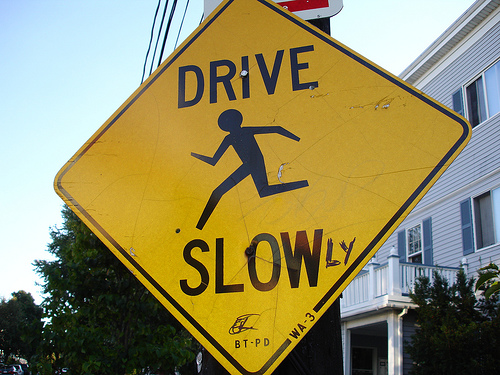Advice I Wish I’d Been Given When I Started … Part 7
This continues our series asking some seasoned, experienced authors what three key bits of advice they would give new writers that they wished they’d known when they started writing. We all wish someone had given us gems of wisdom that would help us avoid wasting precious time and making serious career mistakes. So I hope hearing the advice from these various authors will help you in your writing journey!
Today’s post is from author Amanda Socci:
Are you a new writer? If so congratulations! You are embarking on a wonderful journey of creative expression that is filled with the beauty of words. Writing is a fun activity that gives you the perfect outlet to express your opinions, describe an event, or inform others about something really cool. However, as a new writer, you must take your writing seriously as if it were a paid job, even if you are not paid to write or blog.
Taking writing seriously is a lot of work, incredibly time-consuming and sometimes downright annoying, but then again, that accurately describes most things in life that are worth having, right? Trying to find the right partner in life, finding a good school for your child, and even learning how to dress in flattering styles are all examples of things that are wonderful but take great effort in achieving.
Treating writing as a craft requires a significant amount of work and stamina, but it is well worth it and makes you stand apart from most writers who publish their writing haphazardly or without much care. The following are my three key pieces of advice to help new writers be more serious and dedicated about their craft.
Practice perfect grammar. If you’re unsure, look it up!
I think if I were to pinpoint my biggest pet peeve about writing, it would have to be poor grammar. Eight times out of ten, novels and blog posts contain egregious errors in spelling, word choice, and grammar. Words like loose are sloppily used instead of lose. Capital letters litter every paragraph like garbage strewn on the beach. Informal words, expressions, and expletives pollute the writing like smoke in a nightclub. These are the kinds of things that irritate me like fingernails scratching across the blackboard.
New writers do not have to be a part of that embarrassing statistic. In fact, I hope you are not! I strongly encourage you to elevate your writing and blogging to being the cream of the crop by paying close attention to your grammar. There are many excellent online resources to help you better understand the rules of grammar. When in doubt, look it up! Ask for help!
It’s also a great idea to take the time to read and study the reasons writers use certain words instead of others. What meanings are they trying to convey? Do you like the way other writers describe things? Reading really does help you improve your own writing. Try to understand sentence structure by reading good examples of how others write. Practice what you learn. It may seem difficult at first, but it is important because the research, study, and practice of grammar are essential building blocks of good writing.
Write blog posts and “sit on them” for a while, then reread a few times.
If you’re a blogger, this is another piece of controversial advice that goes against the norm, but one that is indispensable to the new writer. In my opinion, bloggers are generally not serious writers because of their functions and goals. Bloggers want to get information out quickly to their readership. They want to run contests, promote a brand, or highlight upcoming events. Time is of the essence in blogging, which usually means there is no time for grammar checks. But novelists can be just as hasty in turning in manuscripts or publishing them independently without having them thoroughly edited and proofread.
Writing blog posts or longer pieces of writing should be an exercise in dedication. If you work at a job and your job requires you to stuff envelopes, train employees, or cook brunch for a hungry crowd, you will put every effort into doing a good job, right? Even minimum-wage-earning McDonald’s employees must show up to work properly groomed and in uniform. Even though they get paid little, most are dedicated and make the effort to do a good job.
I realize that the stakes are higher at a paying job, but not being paid for writing or blogging is not a valid excuse for failing to be dedicated in writing. Writing requires unbreakable determination and hard work. The new writer can effectively practice that by writing, putting aside that writing for a few hours or a day, working on other writing or projects, and coming back to the original writing with a fresh set of eyes. That makes it easier to spot errors and correct them.
Write consistently, even when you are tired. Writing consistently helps form excellent writing habits.
People who practice activities each day automatically strengthen their abilities to do those activities. If you like to sing, practice vocal scales. It will improve your singing voice and help you reach those high notes. If you like to cook, practice knife techniques and experiment with spices. Eventually, you will burn things less and learn to prepare tastier meals.
If you are a writer, you must practice your craft consistently, preferably on a daily basis—even if you are tired. Writing when tired may not necessarily produce Shakespearian-quality strings of writing perfection each time, but you can certainly aspire to it, right? Saying that you like to write and dreaming about doing it at some point are very different from actually sitting down to do it.
Write every single day, whether it be morning pages, a journal entry, a handwritten note to a friend, a newspaper opinion-editorial, a blog post, or a social media comment. The key is to do it every single day, even if you are tired. You must learn to strengthen your writing muscles by doing it. Eventually, you will improve. You will do much better than you did yesterday. You will begin to write effortlessly, creatively, and with more conviction.
But you must do it.
If you, the new writer, heed these three key pieces of writing advice to help you become more serious and dedicated in your craft, I assure you that you will rise above the sea of writers. You will become more prominent and well-known, and you will effectively open doors to good writing opportunities.
Featured Photo Credit: the_munificent_sasquatch via Compfight cc
 Amanda M. Socci is a freelance writer and blogger who affectionately describes herself as the Creative Idea Gal for her uncanny ability to come up with 1,000 ideas about any topic. Amanda eats, breathes, and lives all things creative. Easily inspired, Amanda also loves cooking, baking, crafting, photography, recycling, and line dancing when not busy caring for her two precious girls.
Amanda M. Socci is a freelance writer and blogger who affectionately describes herself as the Creative Idea Gal for her uncanny ability to come up with 1,000 ideas about any topic. Amanda eats, breathes, and lives all things creative. Easily inspired, Amanda also loves cooking, baking, crafting, photography, recycling, and line dancing when not busy caring for her two precious girls.












While I agree with most of it, I have to admit writers need to take rests as well. If you overdo it, you have nothing to share. From my experience, I need to write, study the craft of writing, but I have to take necessery breaks as well. Without recharging myself, I’m dead like a fallen leaf from the flower that dried up. To my surprise, I write better as well after taking time away from writing.
And yes, you have to learn the rules, but forget them all while you write. Be your own voice, and see how your own writing draws you in. If it draws you in, it will affect others as well. After you create, then edit your writing.
Thanks for the feedback, Anna!
I agree on the need for bloggers to take more time with posts. Any time I’ve hastily posted, I’ve always had to go back and edit. I don’t publish content daily or even every other day, so I suppose my time constraints aren’t the same as the mega-bloggers. Still, I have unfollowed blogs that use poor grammar, do not check for spelling, or a worse offense–have been caught stealing content from other blogs (an entirely different conversation).
As Anna pointed out above, writers do need breaks. I like that in your post you mention any form of writing should be done daily, whether blog, article, or a handwritten note. Yes, I can do that! I wrote some free-lance TV features for a now-defunct blog just for fun and to practice writing for an audience on deadline. It put me in a different head-space than novel writing. I also comment on blogs like this about once or twice a week, to see what everyone else is up to.
Hopefully I made it through with no errors…:)
Good to see you’re keeping up the daily writing, Stephanie! Very important to do, even when tired. Writing is strengthened at all times 🙂
If you can forgive a mischievous sense of humour, I commend you for your well-written article. Practice does make perfect. Good grammar is great (as well as being alliterative). I also find that leaving written work for a spell and then revisiting it allows me to see what I’ve actually written v. what I think I’ve written.
Good writing is a beautiful thing to behold.
I’m a huge fan of humor, Michael! Alliteration is always fun 🙂 Thanks for commenting!
I write blog posts out in advance so they at least get three edits before they go live.
Hi Dan:
Appreciate the feedback! Going through edits is good, but don’t feel that you need to tie yourself to a specific number of edits before you’re satisfied. You can edit your own work 10 times and it still may have errors. More important than constant edits, I think, is a serious dedication to learning and understanding grammar rules.
All great pieces of advice. I try to write my blogs ahead of time so that I will have time to “sit on them” and reread them to verify they are not just rants or disjointed opinion pieces.
Also, any serious writer who thinks grammar mistakes on their blog (or even Facebook status)aren’t a poor reflection on them needs to rethink being a professional writer.
Congratulations on making the Top 10 Blog list.
Hooray!!!! Delighted you feel the same way, Sharon!
I do think it’s important to write something every day. I write on a keyboard, but the big thing for me is to pick up a pen and write by hand every single day, even if it’s just the grocery list. I can push thousands of words on the computer, but if I don’t hold that pen, I don’t feel I’ve written for the day. Great post. Thank you. 🙂
Thanks, Robyn! All too often, I fear that writers mistake computer-generated text as the only type of real writing that is available. Writing originates with the pen and eventually makes its way to the computer 🙂 Glad to hear you’re sticking to your old-fashioned guns (“pens”).